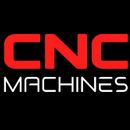Top Certifications in Manufacturing: A Comprehensive Directory

Top Certifications in Manufacturing: A Comprehensive Directory
In today's competitive landscape, obtaining the right certifications in manufacturing is crucial for businesses aiming to improve quality, enhance operational efficiency, and meet regulatory standards. Certifications serve as a benchmark of excellence, showcasing a company’s commitment to quality management and continuous improvement. This article provides a comprehensive overview of top manufacturing certifications, organized by industry and quality standards, complete with descriptions and applications.
What Are Manufacturing Certifications?
Manufacturing certifications are formal acknowledgments that a company meets specific standards set by industry organizations or regulatory bodies. These certifications can cover various aspects, including quality management, safety protocols, environmental practices, and industry-specific requirements.
Importance of Manufacturing Certifications
- Quality Assurance: Certifications demonstrate a commitment to maintaining high standards of quality in processes and products.
- Competitive Advantage: Companies with certifications often have an edge over competitors who do not have recognized credentials.
- Regulatory Compliance: Many industries require specific certifications to comply with legal and regulatory standards.
- Customer Trust: Certifications build customer confidence in a company's products and services.
Overview of Top Manufacturing Certifications
By Industry
| Industry | Certification | Standard | Description |
|---|---|---|---|
| Aerospace | AS9100 | Quality Management System (QMS) | Standard for quality management in aerospace manufacturing. |
| Automotive | IATF 16949 | QMS for Automotive Industry | Focuses on continuous improvement and defect prevention. |
| Medical Devices | ISO 13485 | Quality Management System | Ensures consistent design and manufacturing of medical devices. |
| Food Manufacturing | ISO 22000 | Food Safety Management | Ensures food safety throughout the supply chain. |
| Electronics | IPC-A-610 | Acceptability of Electronic Assemblies | Standard for the acceptability of electronic assemblies. |
| General Manufacturing | ISO 9001 | Quality Management System | Specifies requirements for a QMS to enhance customer satisfaction. |
By Quality
| Certification | Standard | Description |
|---|---|---|
| Six Sigma | DMAIC (Define, Measure, Analyze, Improve, Control) | Methodology for process improvement and quality control. |
| Lean Manufacturing | Lean Principles | Focuses on minimizing waste while maximizing productivity. |
| Total Quality Management | TQM | Comprehensive approach to improving quality across all operations. |
| Baldrige Criteria | Malcolm Baldrige National Quality Award | Framework for managing an organization’s performance. |
| ISO 14001 | Environmental Management System | Standard for effective environmental management systems. |
| ISO 45001 | Occupational Health and Safety | Standard for occupational health and safety management. |
Standards and Applications
ISO 9001: Quality Management System
Standard: ISO 9001 is the most recognized quality management system standard globally.
Application: Applicable across various industries, ISO 9001 focuses on meeting customer needs and enhancing satisfaction through effective system processes.
AS9100: Aerospace Quality Management
Standard: AS9100 incorporates the requirements of ISO 9001 with additional aerospace-specific requirements.
Application: Essential for companies in the aerospace industry to demonstrate their commitment to quality and safety.
IATF 16949: Automotive Quality Management
Standard: IATF 16949 focuses on the automotive sector's specific requirements.
Application: Implemented by organizations involved in the automotive supply chain to enhance product quality and customer satisfaction.
ISO 13485: Medical Device Quality Management
Standard: ISO 13485 outlines the requirements for a QMS specific to the medical device industry.
Application: Ensures that medical device manufacturers meet regulatory and customer requirements consistently.
Lean Manufacturing and Six Sigma
Description: These methodologies emphasize continuous improvement and process optimization.
Application: Lean focuses on waste reduction, while Six Sigma aims at reducing process variation and improving quality.
Conclusion
Manufacturing certifications play a vital role in ensuring quality, safety, and efficiency in production processes across various industries. By obtaining recognized certifications such as ISO 9001, AS9100, and IATF 16949, companies not only enhance their operational standards but also build customer trust and competitive advantage. As industries continue to evolve, the importance of these certifications in manufacturing will only grow, reinforcing the need for companies to maintain compliance with established standards.
Investing in the right certifications is essential for any manufacturing organization seeking to thrive in a challenging market. A well-structured certification program can lead to improved performance, increased customer satisfaction, and sustainable growth.
If you would like to explore specific certifications in more detail or need further assistance on a related topic, feel free to ask!


